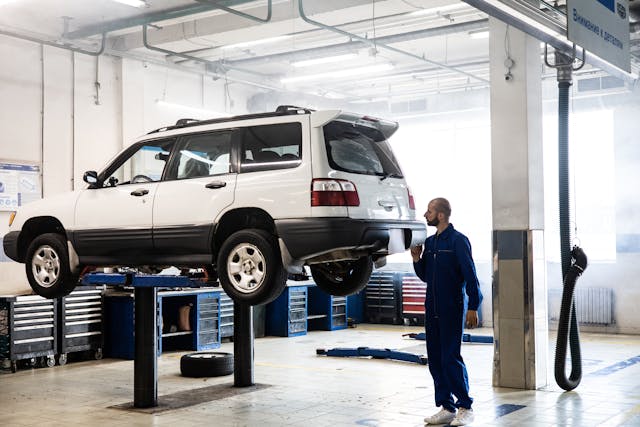Getting behind the wheel should be simple and enjoyable, giving us the freedom to travel and reach our destinations easily. However, some cars have hidden dangers: safety problems. These can range from small issues to big ones that can cause serious accidents. Even though car makers try to make safe cars, sometimes problems slip through, putting drivers and passengers in danger.
In 2022, the National Highway Traffic Safety Administration (NHTSA) recalled 32 vehicle safety recalls affecting more than 30.8 million vehicles in the United States because of safety problems. These problems led to many accidents and injuries, showing how important it is to be aware and careful. So, how can we stay safe on the road? By knowing about common safety issues, recognizing signs that something might be wrong, and using the help available.
Table of Contents
Common Types of Safety Defects
Safety defects are problems in things like products or machines that make them dangerous to use. These issues can happen during how they’re designed or made, and they can put people or property at risk. It’s important to find and fix safety defects quickly to stop accidents and keep everyone safe. According to a product liability attorney, our cars rely on a complex system of parts, and if something goes wrong, it can be very dangerous.
Some of the most common problems involve:
- Braking System: Our ability to stop safely depends on our brakes working well. Problems like worn-out brake pads, leaks in the brake fluid, or issues with the ABS system can make it hard to stop in time or even cause the brakes to fail completely. This can lead to accidents, even in normal driving situations.
- Steering System: Losing control of your car is scary. If parts of the steering system are loose or worn out, or if there’s a problem with power steering, it can be hard to steer the car properly. This makes it difficult to turn corners or stay in your lane, increasing the risk of accidents.
- Airbag System: Airbags are meant to protect us in a crash by inflating quickly. But if they’re faulty, they might not inflate when they should, leaving people inside the car unprotected. On the other hand, they might inflate unexpectedly, causing injuries.
- Tire Defects: Our tires are what keep us connected to the road. If they’re worn down or damaged, they can suddenly blow out, causing us to lose control of the car and potentially leading to the car rolling over. It’s important to keep our tires well-maintained and properly inflated.
- Electrical System: Problems with the wiring or other electrical parts in the car can be dangerous. Wires that get too hot can start fires, putting everyone in the car at risk.
- Advanced Driver Assistance Systems (ADAS): These are features in some cars meant to help us drive more safely. But sometimes they can malfunction, causing problems like sudden braking or warnings when there’s no danger. This can confuse drivers and lead to accidents.
Signs You Shouldn’t Ignore
Prevention is really important. Regularly maintaining your car and having it checked by a qualified mechanic can help catch problems before they get serious. But it’s also crucial to pay attention while driving. Look out for any signs that something might be wrong, like:
- Strange noises: If you hear weird sounds like grinding, screeching, or strange clunking, it could mean there’s something wrong with your brakes, steering, or other parts of the car.
- Unusual handling: If it feels hard to steer, if the car pulls to one side, or if you feel vibrations in the steering wheel, there might be issues with the steering or suspension.
- Warning lights: Don’t ignore any lights on your dashboard, especially ones about brakes, airbags, or the engine. They’re there to tell you if something’s not right.
- Changes in performance: If you notice that your brakes don’t work as well if the car doesn’t accelerate like it used to, or if it handles differently, it could be a sign of a problem that needs fixing right away.
Resources for Consumers
Staying informed about your car’s safety empowers you to make informed decisions. Utilize valuable resources like the National Highway Traffic Safety Administration (NHTSA) website, where you can access information about vehicle recalls and report suspected safety defects directly. Independent mechanic associations such as the Automotive Service Association (ASA) and the National Institute for Automotive Service Excellence (ASE) can help you find qualified mechanics who can diagnose and address potential safety issues.
Additionally, consumer protection organizations like the Center for Auto Safety and Consumer Reports investigate and report on car safety concerns, offering valuable insights and guidance for consumers. By staying informed and utilizing these resources, you can better ensure the safety of your vehicle and yourself on the road.
Protecting Yourself and Others
By staying informed, being proactive with car maintenance, and recognizing warning signs, you can greatly reduce the risk of safety defects. Here are some important points to remember:
- Regularly check your vehicle’s recall status through NHTSA and take care of any recalls as soon as possible.
- Schedule regular maintenance with qualified repair shops and address any issues promptly.
- Pay attention to how your car performs and watch out for any warning signs of potential safety problems.
- If you suspect a safety defect, report it to NHTSA to help improve vehicle safety for everyone.
Remember, every step you take to ensure your car’s safety adds protection for yourself, your passengers, and others on the road. By working together, we can make driving safer for everyone.
Featured Photo by Artem Podrez: https://www.pexels.com/




